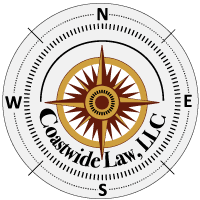The following article appeared in Gulf Coast Woman Magazine
Many families have members who have a special need. There are at least two legal means, ABLE Accounts and Special Needs Trusts, to provide funds to supplement the needs of those family members without jeopardizing their qualifications for governmental assistance.
ABLE ACCOUNTS VS. SPECIAL NEEDS TRUSTS
In 2014, the “Stephen Beck, Jr., Achieving a Better Life Experience Act of 2014,” or ABLE law, was enacted, which allows persons with disabilities to have savings accounts that are sheltered from being counted as a resource for public benefits. These savings accounts are intended to supplement, but not supplant, public benefits. You are free to enroll in any state ABLE program if the program accepts out-of-state enrollees. (It is my understanding that some states such as Tennessee, but not all states, will accept out-of-state enrollees).
Gov. Bryant and the Legislature approved Mississippi’s ABLE law in 2017, and the Mississippi ABLE Board must begin enrollment by July 1, 2018.
ABLE accounts have the following limitations not found in Special Needs Trusts:
• Only a person whose disability occurred (age of onset) prior to age 26 can qualify;
• Only $100,000.00 is protected against Social Security Income (SSI) eligibility. (The total amount allowed in the ABLE account is $500,000.00, but any amount over $100,000.00 will impact SSI means-tested program);
• The amount that can be added to the account each year is limited to the annual gift tax exclusion amount for that year. For example, in 2018, the amount that can be added to the account is $15,000.00 per year.
WHAT ARE SPECIAL NEEDS TRUSTS (SNT)?
A Special Needs Trust (SNT) is designed to allow the potential beneficiary’s publicly-funded health coverage, usually SSI or Medicaid, to continue despite the individual being a beneficiary of a trust. The terms of the trust must fit the public program’s rules in order for the trust funds not to be considered or counted as an “available resource or asset” that would disqualify the beneficiary from public assistance or trigger a transfer penalty period. Federal statute, 42 USC § 1382b(e)(5) and § 1396p(d)(4), creates an exception if the assets are placed in a properly drafted Special Needs Trust that meets all of the statutory requirements.
WHO CAN BE A BENEFICIARY?
The beneficiary should be under age 65 and be disabled as defined in the Social Security Act. The Social Security Act defines disability as follows:
For all individuals applying for disability benefits under Title II, and for adults applying under Title XVI, the definition of disability is the same. The law defines disability as the inability to engage in any substantial gainful activity (SGA) by reason of any medically determinable physical or mental impairment(s) which can be expected to result in death or which has lasted or can be expected to last for a continuous period of not less than 12 months.
Under Title XVI, a child under the age of 18 will be considered disabled if he or she has a medically determinable physical or mental impairment or combination of impairments that causes marked and severe functional limitations and that can be expected to cause death or that has lasted or can be expected to last for a continuous period of not less than 12 months.
SNTS PROVIDE THE FOLLOWING ADVANTAGES:
• Provide funds for expenditures not paid by Medicaid or SSI programs.
• Preserve eligibility for government benefits for an individual with a disability, when drafted and administered properly.
If you have a family member with a special need, you should talk to an attorney about your situation. There may be a way to provide for him or her without endangering valuable governmental assistance programs.
Kathy Brown van Zutphen is an attorney licensed to practice law in Alabama and Mississippi. She focuses on the “elder law” areas of trusts, estates, and conservatorships. Additionally, she litigates lawsuits and represents small business owners as part of her legal practice. You can also reach her at her office: (228) 357-5227.


